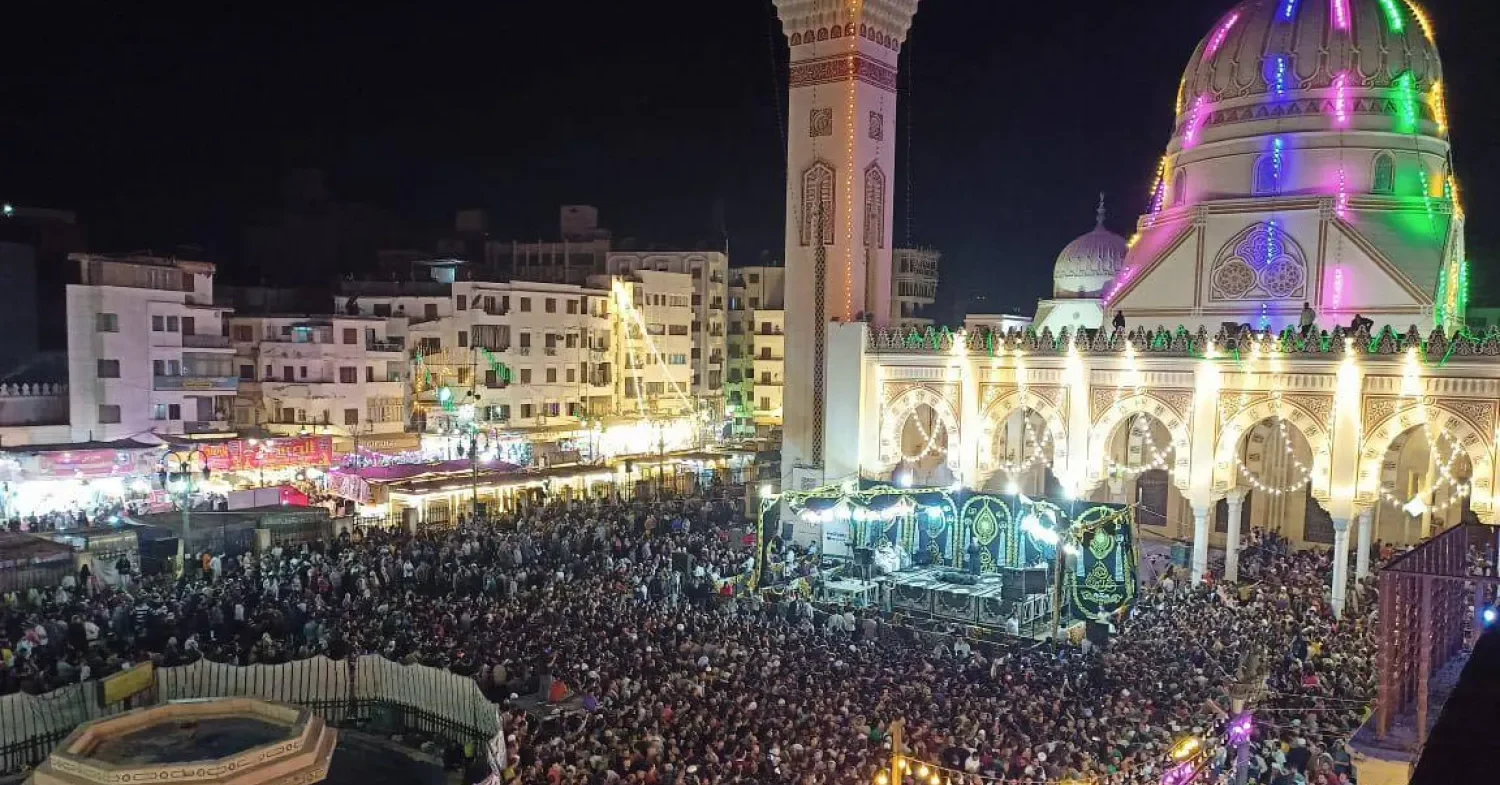Every autumn, the industrial city of Tanta in Egypt’s Nile Delta transforms into a site of spiritual devotion and carnival-like celebration. Pilgrims pour into its streets by the hundreds of thousands, sometimes millions, to pay homage to Ahmed Al-Badawi, known as Al-Sayyid Al-Badawi, a revered 13th-century Muslim Sufi whose shrine stands at the heart of the city.
Al-Badawi was born around the year 1199 in Fez, Almohad Caliphate, modern-day Morocco. He settled in Egypt, where he founded the Badawiyya order of Sufism, a mystical branch of Islam through which followers strive to attain divine love and understanding by personally experiencing God.
After his death in 1276, his tomb became a site of pilgrimage and devotion. Called Moulid Al-Sayyid Al-Badawi, or the Al-Sayyid Al-Badawi Festival, the week-long festival unfolds each October to mark the birth of Al-Badawi, a venerated saint and spiritual guide across Egypt.
Over the centuries, the annual moulid evolved into a sprawling public event that merges religious ritual with popular festivity.
Two million visitors flocked to Tanta this year for the festival, joining late-night gatherings of prayer and song and sharing in free communal feasts offered in devotion to the Prophet’s family. Centered around the Al-Sayyid Ahmed Al-Badawi Mosque, the celebration is regarded as one of Egypt’s largest annual Sufi gatherings.
During the festival, Tanta’s streets come alive with strings of lights, rows of vendors, and banners honoring al-Sayyid, while the sounds of Sufi poems and Qur’anic recitations echo through the air. Pilgrims would be camping around the mosque for days, seeking the saint’s baraka, or blessing.
Beyond its spiritual core, the moulid is also a social and economic spectacle. Stalls selling sweets, children’s toys, and devotional trinkets stretch for blocks around the shrine, with fairs and amusement rides appearing on empty lots.
The festival offers a rare occasion for community gathering. Families travel together, bringing food and bedding. At night, men and women of all ages join processions that snake through the narrow streets, illuminated by green and gold lights.
Beyond its spiritual core, the moulid is also a social and economic spectacle. With vendors selling food, crafts, and other goods throughout the city, the festival provides a significant boost to the local economy, according to a 2025 study published in the Cultural Heritage Journal. It also draws visitors interested in Egypt’s folk traditions, helping to support jobs and small businesses in Tanta.
Not everyone, however, greets the moulid’s return with unqualified joy. For decades, conservative clerics and modernist reformers have criticized the festival for its rhythmic chanting, and worshipping and asking for blessings from a saint.
Moulid Al-Sayyid Al-Badawi remains controversial precisely because it sits at the intersection of popular Sufi Islam and mainstream Sunni orthodoxy. Although roughly 90 percent of Egyptians are Sunni, Islamic practice in the country ranges from strict scripturalism to deeply rooted folk mysticism.
According to Sheikh Abdel Moneim el-Shahat, the official spokesperson for Alexandria’s Salafi movement, Salafis oppose seeking blessings at tombs and shrines, considering it contrary to Sharia law. Instead, they hold that spiritual blessings should be sought only from the Black Stone at the Kaaba in Mecca, which is circled by millions of pilgrims each year during Hajj.
The Salafi movement, a broad current in Sunni Islam, takes the earliest Muslim generations, those who lived with and after the Prophet Muhammad, as its model. Its followers, or Salafis, place the Qur’an and the Prophet’s teachings as the core sources of Islamic law and everyday practice.
Yet for many Sufis and ordinary Egyptians, such criticism misses the point. The moulid, according to them, is a deeply rooted expression of popular faith, one that connects spiritual devotion with Egypt’s social fabric.
Nonetheless, Moulid Al-Sayyid Al-Badawi stands as one of Egypt’s most vivid displays of living Sufism. It is at once devotional and commercial, spiritual, profane, and a celebration that captures the contradictions and resilience of Egyptian popular religion.







Comments (0)